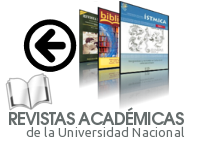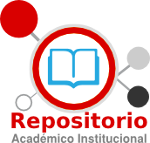The Bimodal Update Course for Social Studies Teachers of the Regional Education Directorate of Heredia. An Experience from the Bimodal Continuous Education Project
DOI:
https://doi.org/10.15359/rp.19.1Keywords:
Social Studies, Continuing Education, Bimodal Education, Educational Technology, VirtualityAbstract
For this article, we intend to develop the experience of the bimodal update course for Social Studies teachers of the Regional Education Directorate of Heredia. The course was attended by 39 high school teachers, who participated in face-to-face and virtual sessions for four months –20 contact hours and 20 virtual hours–, addressing topics such as: Environmental History; Social Revolutions in Latin America; Environmental refugees in the 21st century; Islam and Christian and Muslim societies in the Middle Ages; the geopolitical role of China in the context of a globalized economy. The sessions were developed by specialists from the School of History and the School of International Relations. The virtual sessions were developed through the Virtual Classroom of the National University (UNA). The subjects of the course were selected in conjunction with the Social Studies Advisor of the Regional Directorate of Education of Heredia who expressed the need to update the teachers who taught seventh and tenth year in some contents of the new study programs.
References
Andrade, J., Nava, M. y Valverde, J. (2009). La educación continua como proceso de formación académica en los alumnos egresados de las instituciones de educación superior en el estado de Sonora (México). Contabilidad y Negocios, 4(8), 57-62.
Araya, C. (2013). Diseño, ejecución y evaluación de un curso bimodal en la educación superior. Revista Electrónica Actualidades Investigativas en Educación, (7), 1-22.
Jiménez, I. y Vargas, C. (2011). Consideraciones para la implementación de un modelo de educación virtual: Revisión de áreas estratégicas. Revista Electrónica Educare, 15(2), 119-139.
Ministerio de Educación Pública (2009). Programa de Estudios de Educación Cívica. Tercer Ciclo de la Educación General Básica y Educación Diversificada. San José, Costa Rica: MEP.
Ministerio de Educación Pública (2016). Programa de Estudios Sociales para Tercer Ciclo de la Educación General Básica y Educación Diversificada y Técnica. San José, Costa Rica: MEP.
Presidencia de la República. (30 de mayo, 2016). MEP lanza nuevos programas de estudio en Ciencias y Estudios Sociales. Recuperado de https://presidencia.go.cr/comunicados/2016/05/mep-lanza-nuevos-programas-de-estudio-en-ciencias-y-estudios-sociales/
Rodríguez, N., Espinoza, J. y Moreira, T. (2015). Cursos bimodales y presenciales: ¿Existen diferencias en los aprendizajes del estudiantado del TEC? Investiga TEC, (22), 3-4.
Schwartz, S. y Pollishuke, M. (2014). Aprendizaje activo. Una organización de la clase centrada en el alumnado (2da ed.). Madrid, España: NARCEA, S.A. DE EDICIONES.
Salmon, G. (2004). E-actividades. El factor clave para una formación en línea activa. Barcelona, España: Editorial UOC.
Sierra, E. (2013). El aprendizaje activo como mejora de las actitudes de los estudiantes hacia el aprendizaje (tesis inédita de maestría). Universidad Pública de Navarra, Navarra, España.
Downloads
Published
How to Cite
Issue
Section
License
Los autores que publican en esta revista están de acuerdo con los siguientes términos:
a) Los autores conservan los derechos de autor y garantizan a la revista el derecho de ser la primera publicación del trabajo bajo una Licencia Creative Commons Atribución-NoComercial-CompartirIgual 4.0 Internacional (https://creativecommons.org/licenses/by-nc-sa/4.0/) que permite a otros compartir el trabajo con un reconocimiento de la autoría del trabajo y la publicación inicial en esta revista (componente BY o atribución). Coincidente con la política de Acceso Abierto, no se podrán hacer usos comerciales de los contenidos publicados por esta revista (componente NC). Se permitirán las obras derivadas (remezcla, transformación o creación a partir de la obra original) siempre y cuando sean distribuidas bajo la misma licencia de la obra original (componente SA).
b) Los autores pueden establecer por separado acuerdos adicionales para la distribución no exclusiva de la versión original de la obra publicada en la revista (por ejemplo, situarlo en un repositorio institucional o publicarlo en un libro), siempre y cuando: a) sea reconocida la publicación original en esta revista (componente BY); b) no se haga uso del material de reuso con propósitos comerciales (componente NC); c) el material de reuso sea distribuido bajo la misma licencia de la obra original (componente SA).
c) Se permite y se anima a los autores a difundir sus trabajos electrónicamente (por ejemplo, en repositorios institucionales o en su propio sitio web) antes y durante el proceso de envío, ya que puede dar lugar a intercambios productivos, así como a una citación más temprana y mayor de los trabajos publicados (Véase The Effect of Open Access) (en inglés).


_11.55_.09_a_._m_._.png)
_1.34_.01_p_._m_._2.png)
_9.45_.02_p_._m_._.png)




_2.23_.09_p_._m_._.png)
_2.35_.17_p_._m_._.png)

